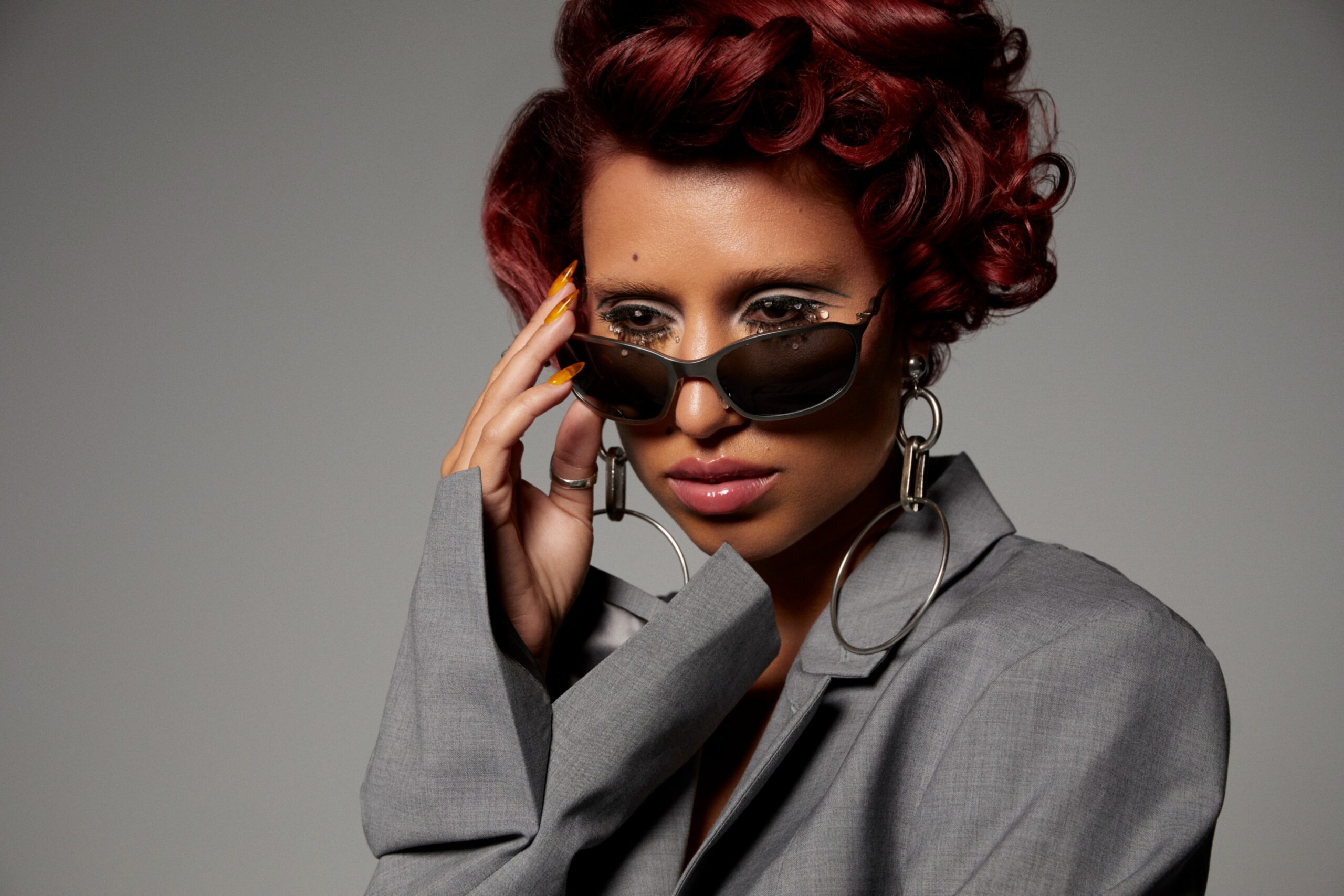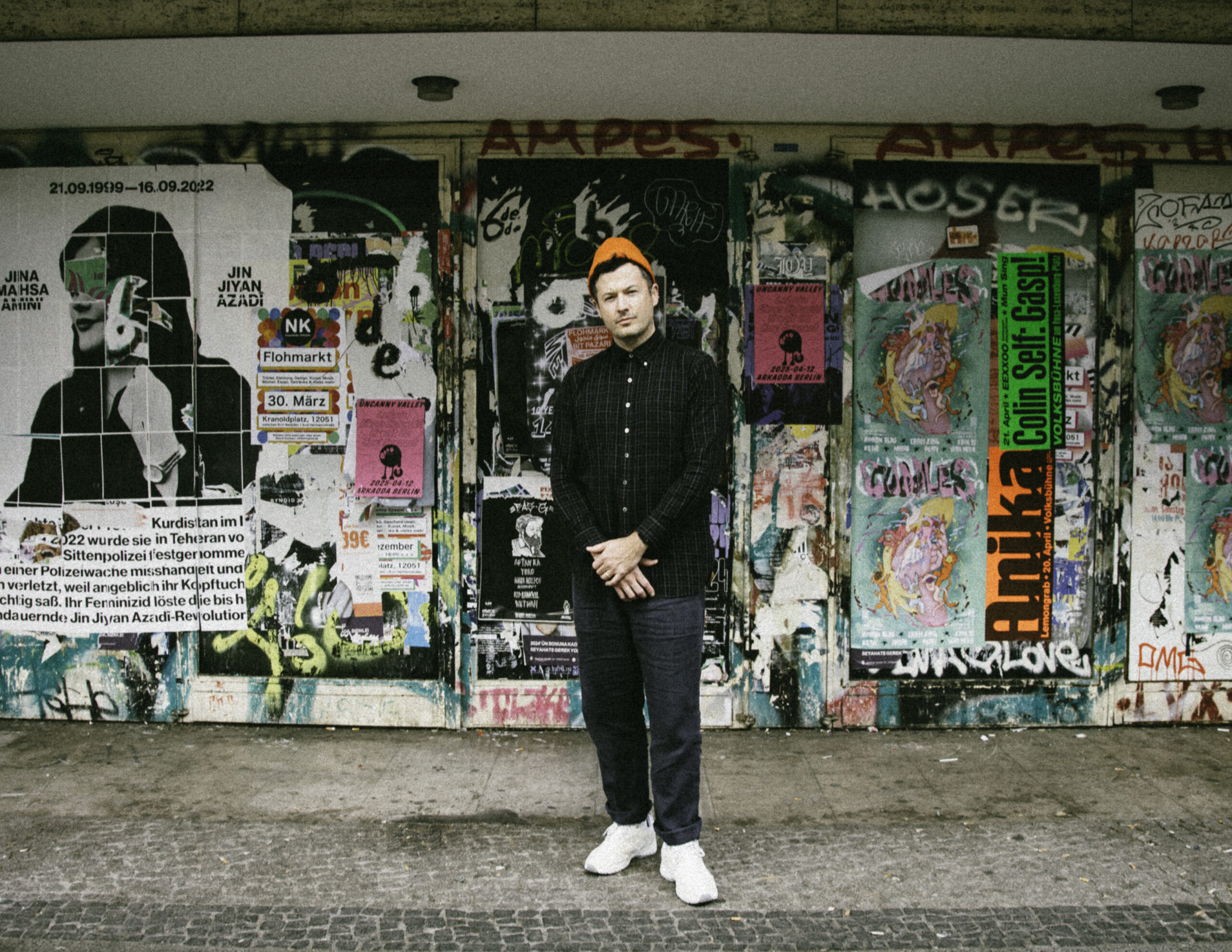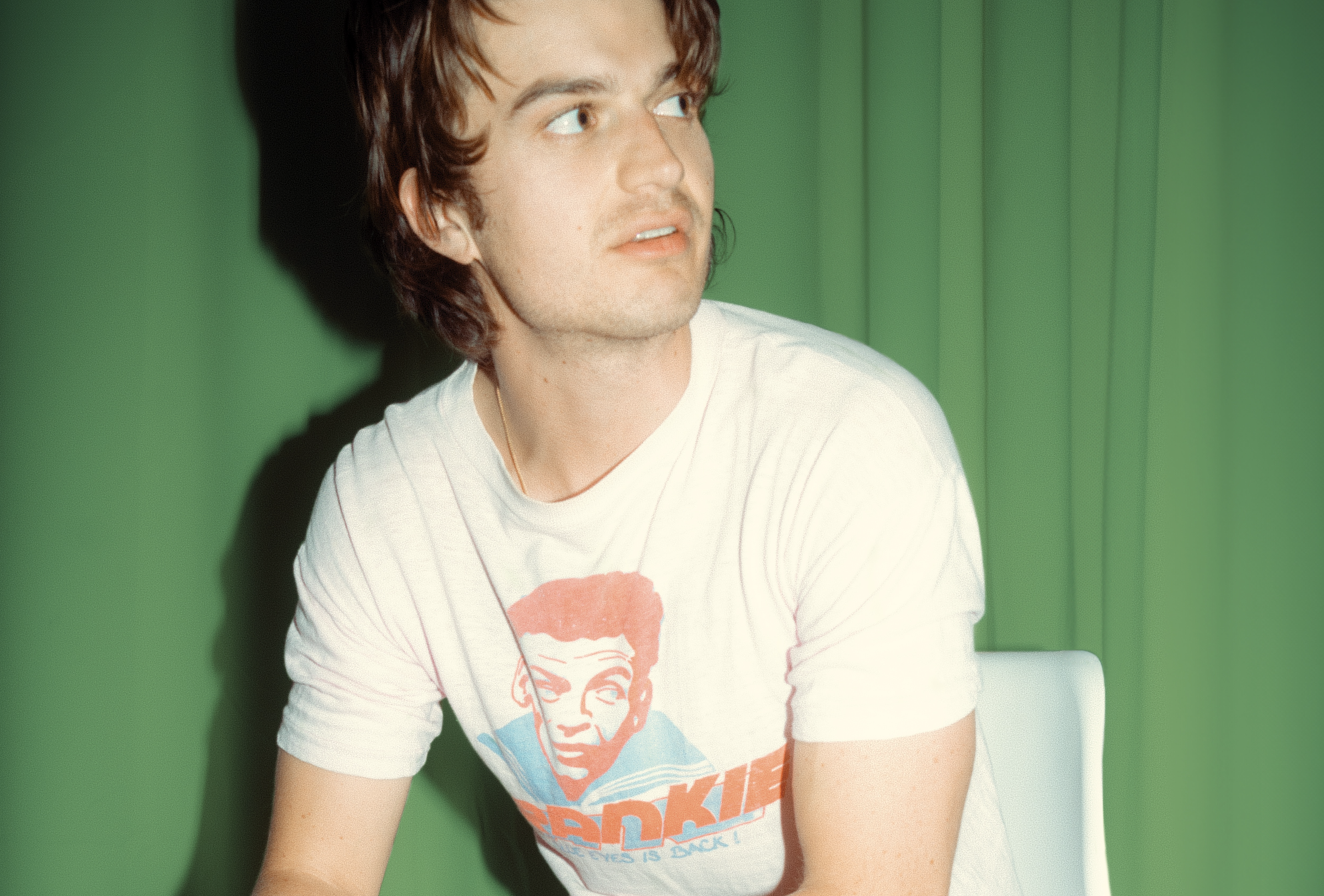Foto-© Callum Walker Hutchinson
Musik-Connoisseure hatten Raye natürlich längst auf dem Schirm, als ihr Song Escapism kürzlich auf TikTok viral ging. Für viele steht der Erfolg der Single aus Rayes am 3. Februar erscheinenden Debütalbum My 21st Centruy Blues sinnbildlich dafür, was passiert, wenn man einen Vogel endlich fliegen lässt. Lange war die 25-jährige Britin, die gekonnt Pop mit souligem Gesang kombiniert, gefangen in einem goldenen Käfig.
Polydor Records hatte sie als Teenager unter Vertrag genommen und versucht sie in die Form einer Mainstream-Pop-Künstlerin zu pressen. Und scheiterte. Trotzdem ließen sie die Sängerin nicht aus ihrem Vertrag. In Folge dessen wurde ihr Debütalbum jahrelang zurückgehalten. Bis Raye der Kragen platze und sie 2021 auf Twitter auspackte, wie ihr Label sie und ihre Kunst behandelte. Kurz darauf konnte sie sich aus dem Vertrag befreien und ihr heiß ersehntes Debüt außerhalb der Fängen von großen Labelbossen fertigstellen. Ihre Erfahrung mit Polydor ist nur eines von vielen tiefgründigen Themen, die auf My 21st Centruy Blues ihren Platz finden.
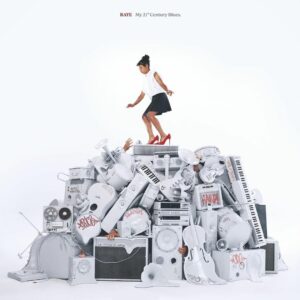
Wir haben Raye vor ihrem Konzert in Berlin zu einem intimen Gespräch getroffen. Dabei hat die Künstlerin offen wie keine andere über Musik als Medizin, Schönheitsstandards und ihre Erfahrung mit sexuellem Missbrauch gesprochen.
It’s been almost a year now since you parted ways with your label. Would you say you have healed from that experience?
I definitely think for the most part I have. For the most part. I definitely went in and got active closure. At the Brit Awards after party, I got on that party bus and I walked up to all of them, the CEOs, and I was like: Hi! You know, and I found my closure in that. And in more ways than one, and I’d say, taking a step back, I realized that unfortunately on their part is not personal. It’s just business, you know? And I just got stuck in the system. So there’s no hate or, you know, evil wishes on my end. No.
But was it a decision you made at the moment, to go up to them, to go on that party bus or did you plan it beforehand?
So there’s an artist called Sam Fender. He just won the big awards and he’s a really good mate. And I was like, I’m going to come with you on your party bus. Because he’d won the award, so I knew if I went with him, there was nothing they could do about it. Then we went on, on the party bus to his after party full of Polydor records, and it was hilarious. Some of them avoided me entirely and to be honest, there were some employees at Polydor I flippin loved, and I’m gutted I’m not working with anymore. People who always believed in me and, if they’d had their way, would have helped me out with my album endeavors. But yeah, definitely peace. I’m just happy where I am now. I’m happy that I’m free and in control of my career. I think the difference is, for seven years needing permission, whereas now, you know, I get to just be like: Nah, this is what I think I’m going to do. That is the most empowering feeling, I’m working for someone else anymore, but I’m working for myself. Working with my team for my goals, which is amazing.
Can you recall the kind of moment where you were like, okay, I need to liberate myself from the situation? Or was it a gradual process?
It was very confusing because I think I was a very young girl when I entered the music industry. I was 15 when I released my first song, and I had a different manager at the time. And he also guided me very interestingly toward places I didn’t think I belonged or necessarily wanted to be. In hindsight, it’s all smoke and mirrors, you know, When you’ve had a big song everyone’s excited and people are like, that’s good that you’re on the radio and your vision starts to get skewed. It’s what do I want to do versus okay, feed the machine. Keep up with everyone. What do they want? I felt like a singer and not an artist for a long time. So I guess it was gradual. It kind of feels like, the frog in boiling water analogy. If you just put a frog in boiling in a pot of boiling water, it would jump out. But if you slowly just turn the temperature up a bit, you don’t even realize what is happening until it’s too late.
Your album has now been years in the making, and I’m wondering how much of your original vision is still in this piece?
What’s beautiful is I came up with the title when I was like 19 or 20. I’ve had the title for a minute. And a lot of the songs are old songs that have existed for a long time that I’ve just added a little refresh based on my perspective now. But a lot of it I’d create it back then, being like, this is going to go on my album one day. I just didn’t know it would take how long it took. This felt kind of like broken bits of glass from my past, like piecing together feels like one big, beautiful, ugly mosaic of an album. I am so proud of it.
Is there a bit of fear involved now, getting it out there now?
I think the only fear is maybe the subject matters and how visceral some of them are, how intense some of them are, how different some of them are to anything I’ve released before. I fear that maybe some people will be like, Oh, that, that’s too much for me. I’m out. But I have also seen so many positive comments recently. Just yesterday someone was like, I used to be a passive fan, but after these songs, I’m all in! I want people who are like, Oh, shit, there’s a new song. Let’s sit down and get ready to break it all down.
I guess it wasn’t just you being stuck inside this cage. It’s also the fans outside waiting the like. Why isn’t he giving anything to us? So it’s so awesome for them. It’s going to be so beautiful that now you can just release your art the way you anticipated.
Just as loud and as boldly as I like.

Let’s talk about the song Hard Out Here. To me, it almost seems like it’s a manifesto, and it sounds like you sat down and wrote it in one session. Can you tell me a bit about how it came together?
The music behind the song has existed for a minute. It used to have a completely different song on the top of it years ago that I made with the guy who executive produced the record called Mike Sabath. One of my best friends as well. I wrote it within the two weeks when I had no idea of what was going to happen. It was just after I’d gone on Twitter and talked about my label, and I was so angry and sad. We recorded it in my living room. I was just in a rage. I was so overwhelmed, and I was like, bring the beat up, delete everything on it. I’m just going to sit here in front of this mic, and I’m just going to do it. Headphones in and let it all fall out. It was therapy in its purest form, for sure.
Were you scared of the reactions of the industry when you put the song out, considering it is so close to your heart?
A little bit. And a few people didn’t get it and were trying to say I was racist. But I would rather you viscerally hate something I’ve said and or hate something I’ve done then feel nothing. That song is just what the last seven years of my life felt like. And I need to be honest about that. I felt like my mouth was covered so long. And I played the game for a long time. Was very polite. Played sweet. It didn’t manifest how I should have deserved, but everything’s turned out just perfectly. That song is definitely medicine. And Intense.
And the people that can’t relate to it or think it is reverse racism, the song is jut not meant for them, right? The people you want to reach, they’re going to get it, and you don’t need to explain anything.
Exactly. There are people who are sitting in places of suppression beneath people calling the shots over their life in a harmful way. It’s not just the music industry. This occurs everywhere and like you said, it’s not going to be for everyone. Not every story is for everyone. There’s a song on the album called Body Dysmorphia. You might go to the gym five times a week and love the way you look, and you might listen to this song and don’t understand this feeling. But that doesn’t mean the message of the song isn’t true. It’s just not true for you. And that’s okay.
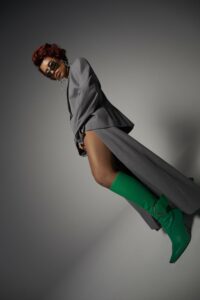 I was actually going to ask you about that song, because it made me really emotional. I could relate so much when you just brought it up, I got goosebumps. It is in a way comforting to know that other people, even famous artists, struggle with body image as well.
I was actually going to ask you about that song, because it made me really emotional. I could relate so much when you just brought it up, I got goosebumps. It is in a way comforting to know that other people, even famous artists, struggle with body image as well.
Well, that’s the thing about some of these emotions, is we tend to deal with them all on our own. They’re very isolating. Embarrassing. It is like there’s no space to talk about it because you’re not going to meet up with someone you know, even a close friend, and talk honestly about you feel. I mean, there’s no room to divulge those emotions. So you end up in your spaces of aloneness, having to process them. I went through a really intense eating disorder for a long time and nobody knew. No one had a clue, and I was just ashamed. Actually, I needed a song that I could just flipping listen to and be like, I feel this way right now, and it’s okay. And it’s normal.
As women, we need to start validating these feelings because we tend to just try soothing people. And then if you’re conventionally attractive, people don’t take these feelings seriously. And this lack of validation makes it so much more isolating.
Right! And we are under such immense pressure due to beauty standards. And social media has so many positive things, but we all know how many toxic and damaging things come alongside it. Facetune is everyone’s favorite app. Like I use that, I’m not going to even hide and lie because perfection is just broadcast everywhere. It’s conditioning all of us to feel like if we have one blemish, to freak out. I mean, it’s one fucking spot. But the pressure’s wild, you know? I mean, one of my little sisters is 11. She’s actually the little girl at the end of the song. And I’m thinking, bloody hell, it’s going to be tough. But these are all things that we can’t conquer unless we’re talking about it.
I feel like in the music industry, the male gaze is still ingrained in everything that happens. Perfection and these idealized female bodies, that’s what sells. And you have these white cis men at the top, and they’re like, no, we want you in this outfit. We want you in this.
Oh, yes. And I mean, that’s part of the reason I bleached my eyebrows. It is very anti-commercial beauty in a weird way. And, you know, sometimes when I have no makeup on, and I’m walking around, I look crazy, but I love it. For me, it’s me actively rebelling against this system. No, I don’t need to look beautiful by your standards. It is quite empowering.

There’s one last song that I really want to talk about and that’s Black Mascara where you talk about a very traumatic experience of being drugged by a man you trusted. When something like this happens to you, do you need to take some time to heal, and then you go to the studio, or is it something that happens immediately? If you would like to share some insights.
I mean, at this time, I wasn’t able to really take any time to process any of it. It was the new year, and I was in another country and something happened. The whole experience was so traumatizing. I had a four-hour-long panic attack and a swollen ankle. I couldn’t call the police because if I was found with what was in my body, I would have got put in jail. I mean, I was so scared, and I remember having to wait. I had locked myself in the bathroom. I waited until I could hear him snoring so that I could sneak out and, like, run for my life. I was so flipping scared, I’d stay in my hotel until I sobered up. And it took me like three days to even do that. Yeah. So then I’m flying back to London, and it’s like straight back to work, you know? I mean, but I’m a shell of who I am. I’m like, so sad. And I’m going to the studio with all these different people, and I’m just not myself. Usually, I’m a very happy, bubbly person. And on this particular day, I go into the studio, and I was like, look, I’ve gone through some shit. I’m not in a good place right now. I’m going to get on the piano, I’m going to play some chords. I’d like you to record them, and I’m going to go in the booth, and I’m going to write something over it, and then I’m going to go. So I did. I don’t think I listened to it for like two weeks. And then I pressed play and I listened and then I just cried like, wow. And it became my medicine, you know?
Thank you so much for talking to me and being so open and honest.
Thank you. There’s just nothing to hold back anymore, and that is the beauty of this album. I want to normalize those uncomfortable things, for anyone that might need it.
Aktuell ist Raye auf Europa-Tour. Am 26. Februar macht sie für ihr einziges Deutschland-Konzert in Berlin im Frannz Club halt.










